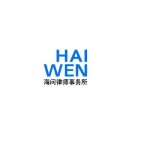Market overview
The M&A market in the People’s Republic of China reflected a complex interplay of post-pandemic recovery, regulatory evolution, and geopolitical recalibration in 2024. Domestically, the volume and size of reported deals remained relatively low, though there seemed to be an increase in the last quarter of 2024.
It is expected that this trend will continue in 2025, with several supportive polices having been issued recently, including by the China Securities Regulatory Commission in September 2024, allowing more flexible payment and valuation methods in M&A of A-share companies, and by the National Administration of Financial Regulation in March 2025, relaxing the rules on bank loans for strategic M&A deals. Technology, energy, and healthcare were hotspots in domestic M&A in 2024.
Inbound deals were less frequent – given the economic conditions, uncertainties in the geopolitical landscape, and ongoing trade tensions, all of which require more careful deal planning and navigation – but investments remain active in manufacturing, asset management and certain other sectors.
In cross-border deals, antitrust enforcement, patent-related issues, and data security-related review are often topics of focus.
Private and public M&A
Private transactions prevail in terms of driving the M&A market, but public M&A is becoming more and more strategically significant, often involving sector consolidation and state-owned enterprise reforms. Public M&A also provides an alternative exit strategy for non-listed assets, since the number of IPOs in the A-share market has drastically slowed down since the second half of 2023.
However, public transactions are subject to heightened regulatory scrutiny and compliance requirements with regard to securities laws. Any delays or complications could impact the transaction’s timeline and outcomes.
Significant transactions
In January 2025, Qiming Venture Partners, a well-known Chinese-based venture capital and private equity firm, announced its intention to acquire control of Tianmai Technology, an A-share listed company. Tianmai Technology specialises in advanced manufacturing and smart technology solutions.
This transaction signals a growing trend of private equity firms acquiring controlling stakes in A-share companies. When the deal was announced, the funds were yet to be raised to finance the deal, and there were no market precedents of such a situation. This raised great interest among market participants. If this transaction is executed successfully, more public M&A sponsored by private equity firms could take place.
Economic factors
According to some third-party surveys, deal volume rebounded a little in 2024, particularly in the last quarter, surpassing 2023 levels. However, when we look back over the past decade, it remains at a low level. Additionally, overall deal sizes tended to be smaller and were most often financial investments.
Drivers of change
Domestic and outbound M&A may increase in 2025 compared with 2024; however, the following indicators should be noted when considering the potential trends.
For M&A in the domestic market:
Positive – supportive M&A and financing policies from regulators.
Positive – increased interest in technology development and tech startups, spurred by recent technology development, including the DeepSeek AI platform.
Double-edged – volatile IPOs, making M&A an appealing exit strategy, but also leading to investors becoming more prudent in making a new M&A investment when an exit through an IPO is less predictable.
For inbound M&A:
Positive – the government is eager to attract foreign investment.
Positive – a rebounding A-share market and Hong Kong capital market.
Negative – ongoing trade tensions and geopolitical uncertainties.
For outbound M&A:
Positive – manufacturing companies seeking to expand or find a new overseas market by investing offshore.
Positive – continued interest in Belt and Road Initiative-related investment.
Double-edged – ongoing trade tensions and geopolitical uncertainties, which, on the one hand, may deter investment in certain regions, but, on the other hand, may make companies eager to invest in other regions to reduce the impact.
The following factors are influencing deal structures:
Industry consolidation – economic weakness and sluggish capital markets in the past two years provide opportunities for industry consolidation at an affordable price or valuation.
Distressed M&A – insolvency restructuring (including those involving bankrupt listed companies and real estate developers).
Financing – the use of acquisition loans is becoming more popular in control transactions, particularly in those with an offshore-onshore structure that makes financing more flexible.
Viability of IPOs – A-share IPOs have been slow since the second half of 2023, but overseas listing of onshore businesses in mainland China has normalised, and somehow accelerated in 2024, particularly for those seeking a listing in the US or in Hong Kong SAR, China, compared with 2022 and 2023. Partly, this is because market participants and the regulators are increasingly familiar with the new regime and the process is becoming more predictable.
Financial investors
Financial deals by private equity players remain prominent in private M&A, though the exit conditions are challenging due to volatile A-share IPOs and a relatively weak economic condition. Private equity firms may play a bigger role in the public M&A market if the aforementioned Tianmai–Qiming transaction is successfully executed.
Key legislation and regulatory framework
The following are the key pieces of legislation and regulatory bodies that govern M&A activity in China:
The Anti-Monopoly Law – overseen by the State Administration for Market Regulation;
The Foreign Investment Law – overseen by the Ministry of Commerce (MOFCOM), and its application will be triggered if an investment by a foreign investor is involved;
The China Securities Regulatory Commission – regulates public M&A and disclosure requirements;
The National Development and Reform Commission (NDRC) – the Office of the Working Mechanism, set up under the NDRC and led by the NDRC and MOFCOM, undertakes the day-to-day work of foreign investment security review; and
The State Administration of Foreign Exchange – oversees and supervises foreign exchange matters.
Regarding foreign investment in A shares, more regulations shall be considered, including the Administrative Measures for Strategic Investment in A-Share Listed Companies by Foreign Investors to be discussed below, and/or the Qualified Foreign Institutional Investors regime.
Legislative changes
The long-awaited amendments to the Administrative Measures for Strategic Investment in A-Share Listed Companies by Foreign Investors were promulgated and became effective in December 2024. They clarified the eligibility requirement for foreign strategic investors and expanded the scope and method of strategic investment to include investment by a tender offer. The revised rules represent a significant step in China’s efforts to attract, and regulate, foreign investment in its capital markets.
The newly amended Chinese Company Law, effective July 1 2024, introduced a number of changes in clauses relating to a company’s registered capital, corporate governance structure, equity transfer rules, directors’ and officers’ liability, and minority shareholder protection.
The 2023 Anti-Monopoly Law amendments introduced harsher penalties for ‘gun-jumping’. They require more thorough antitrust analysis before the execution of M&A transactions.
Practice insight/market norms
In cross-border M&A, parties to the transaction should take care not to overlook the application of foreign exchange-related rules and their impact on the transaction’s structuring, financing, and deal timetable.
Technology
Virtual data rooms are commonly used in due diligence. AI-driven due diligence tools could be a new development, given their efficiency, but professionals remain cautious concerning their application at this stage.
Public M&A
Competitive/hostile bids are not common in the market.
Common conditions in a transaction include antitrust clearance, regulatory approval, or state-owned assets regulatory approval, if applicable.
Measures such as break fees are less common in the market than in many other jurisdictions.
Private M&A
Locked-box mechanisms prevail; however, earn-outs are becoming increasingly common in technology sector deals. While warranty and indemnity (W&I) insurance is becoming more widely known among market participants and is often considered when the seller is an international financial sponsor, its adoption remains limited, partly because the affordable W&I insurance available in the market often fails to cover the gap between the buyer and seller in terms of liability exposure.
The typical conditions attached to a private takeover offer include regulatory approvals, antitrust clearance, material adverse event clauses, and/or shareholder approval.
It is common practice in cross-border deals to provide for a foreign governing law and/or jurisdiction in private M&A share purchase agreements.
IPO exits dipped in 2024 due to market volatility, driving private equity firms towards trade sales, sales to listed companies, or other exit opportunities.
Looking ahead
The author expects Chinese M&A activity to grow modestly in 2025, driven by supportive policies, requests for exits from portfolios by investment funds, and, if it continues, a rebounding capital market. Legal practice will prioritise navigating the deal structures, leveraging the new supportive policies and rules, and the deployment of tech-driven legal tools.


